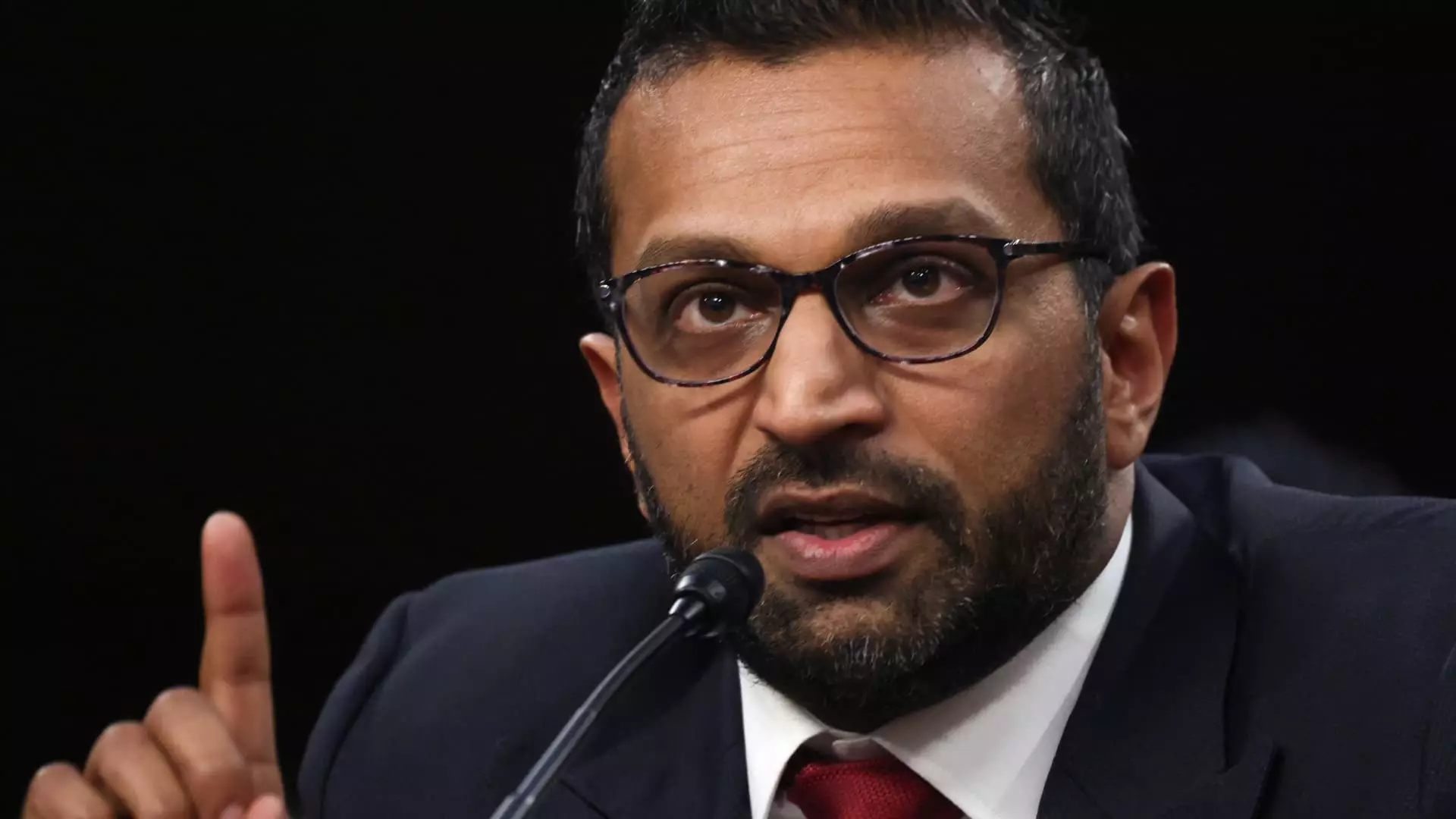The anticipated appointment of Kash Patel, the newly confirmed FBI director, to the role of acting head of the Bureau of Alcohol, Tobacco, Firearms and Explosives (ATF) signals a significant shift in the leadership landscape of these vital agencies. This dual leadership structure raises essential questions about the future of the ATF and its controversial role in gun regulation and enforcement, particularly given Patel’s history as a staunch ally of former President Trump and his reputation among conservatives.
Kash Patel’s expected Swearing-in as the head of the ATF marks a remarkable moment in the intersection of law enforcement and political agenda. As the ATF, with its workforce of around 5,500 personnel, undertakes the enforcement of key regulations around firearms and explosives, it is tasked with responsibilities that include licensing federal firearms dealers and tracing weapons used in crimes. Patel’s dual oversight of both the FBI and the ATF, if confirmed, places him in a unique position to shape the enforcement strategies of both agencies concurrently. This remarkably unusual arrangement suggests an operational overhaul that could incur far-reaching ramifications.
While Patel’s supporters celebrate his appointment as a triumph for gun rights advocates, his critics express caution over the potential for escalation in partisan conflicts surrounding firearm regulations. Historically, the ATF has been a focal point of contention for conservatives, leading to calls for its dismantlement or reform. Patel’s overwhelming support from the right indicates a period of turbulent change, possibly influencing policy directions and regulatory enforcement regarding firearms.
Recent developments, such as the firing of top ATF attorney Pamela Hicks by Attorney General Pam Bondi, are markers of the agency’s transitioning priorities. Hicks, a seasoned Justice Department lawyer, publicly revered her position as ATF chief counsel and expressed her discontent with the circumstances leading to her dismissal, which was framed as a response to the ATF “targeting gun owners.” This action has further amplified critiques against the agency’s approach towards firearm regulation under the progressive policies observed in recent years.
Under the Biden administration, the ATF has sought to implement more stringent regulations around ‘ghost guns’ and to ensure comprehensive background checks for firearms dealers operating outside physical store environments. The contrasting perspectives between those advocating for more stringent control measures and those opposing them, who argue for constitutional rights, are heightened through Patel’s ascendance. His appointment could lead to the dilution of these regulatory advancements, signaling a turning point in the agency’s approach towards gun control.
The political landscape surrounding gun rights continues to evolve, particularly with the Biden administration’s initiatives. President Trump recently instructed the Attorney General to thoroughly assess the Biden administration’s firearms-related actions, expressing concerns over Second Amendment rights. Groups supporting gun control have voiced alarm at Patel’s FBI leadership due to his perceived association with extreme gun rights ideologies, while gun rights organizations consider his FBI directorship a victory for constitutional advocacy.
This polarized perspective suggests an increase in tensions around firearm policies, especially as both sides prepare for potentially fierce advocacy and counter-advocacy depending on the stance Patel and his appointed allies take regarding regulatory measures.
With Patel stepping into a dual leadership role, it raises broader implications for the future composition and function of the ATF. The recent appointments and strategic shifts within the department may herald an era of contentious policy-making intertwined deeply with political agendas. The historical reluctance of both Republican and Democratic administrations to firmly appoint ATF directors has left the agency without stable guidance in recent years. The last confirmed director, Steve Dettelbach, served only from July 2022 until last month, emphasizing the intricacies of navigating political allegiance in the gun control debate.
As the nation grapples with questions surrounding public safety, constitutional rights, and regulatory approaches, the convergence of two significant agencies under Patel’s leadership is likely to spark contentious discussions and legislative scrutiny. Ultimately, this arrangement opens the door for enhanced scrutiny of the agency’s actions and the fiscal, social, and legal implications of Patel’s policies as he steers the ATF in his new capacity.

